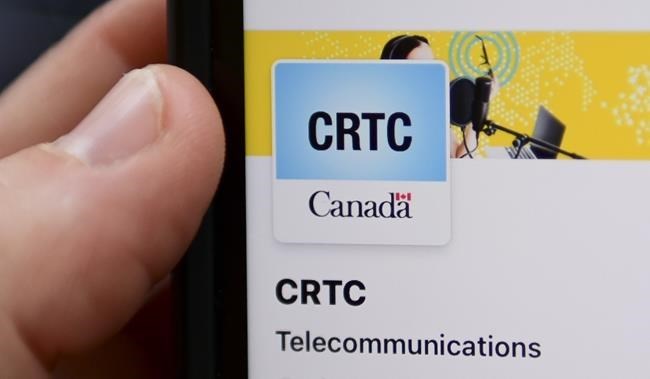TORONTO — It's agreed that Canadians should pay less for wireless and internet services but it's difficult to keep prices low for long without investing in networks, CRTC chairman Ian Scott said Thursday.
Scott, who heads Canada's federal telecommunications regulator, said retail prices could go down faster if internet and wireless service resellers just paid to use somebody else's networks.
But countries that have a lot of resellers tend to see service quality fall and consumer prices rise again in the longer term as rivals cut their profit margins to unsustainable lows to win customers, Scott said.
"And that doesn't really give us confidence that there will be sustainable competition in the future," Scott said.
On the other hand, he said, when a company invests in the infrastructure needed to provide those services, those assets don't go away "if the firm were to disappear, so to speak."
"And it creates an opportunity for someone else to acquire those facilities, and perhaps they'll enter the market with a lower unit costs, and have a stronger ability to compete."
He made the comments during a live virtual interview with telecom journalist Shruti Shekar that was videocast by the Canadian Club of Toronto, which has a tradition of hosting public policy speakers.
Shekar said messages from the audience asked what the CRTC could do about the disappearance of internet promotions during the pandemic and the high cost of wireless data, which has fallen amid government pressure.
"We always want lower rates. And our view is that lower rates and reliable service will be best accomplished through robust competition," Scott said.
He said rates for home broadband services have been flat since 2015, when a CRTC decision said regional phone and cable internet service providers had to sell wholesale high-speed access to independent ISPs.
Scott said he couldn't comment on what the CRTC is doing about lowering those wholesale internet rates from where they were set in 2016 because a long-awaited decision isn't complete.
"If you're asking me if rates should be lower for wireless in Canada, the answer is yes," Scott said. "If you're asking me if rates are too high, the answer is yes."
"Now I can answer your broader question — what are we trying to do about it?"
Scott said that a recent wireless decision issued by the CRTC has opted to allow a hybrid approach that requires the three national wireless carriers to negotiate wholesale deals with regional carriers that want to expand.
Some consumer advocates and communications companies have complained that the CRTC's April 15 decision failed to provide any support for more localized or more specialized mobile virtual network operators (MVNOs)
In addition, consumer group Open Media, says the CRTC put too much faith in Canada's regional carriers given that the largest of those — Freedom Mobile and its parent Shaw Communications Inc. could be bought by Rogers Communications Inc., which has Canada's largest wireless business.
The Rogers-Shaw agreement, which got Shaw shareholder approval on Thursday, can't be completed without approvals from the CRTC, the Competition Bureau and the government's industry department.
Scott said that the CRTC only has limited jurisdiction over mergers, including ensuring the carriers are Canadian-owned or Canadian-controlled, as well as some approvals relating to their pay-per-view licences.
This report by The Canadian Press was first published May 20, 2021.
David Paddon, The Canadian Press



